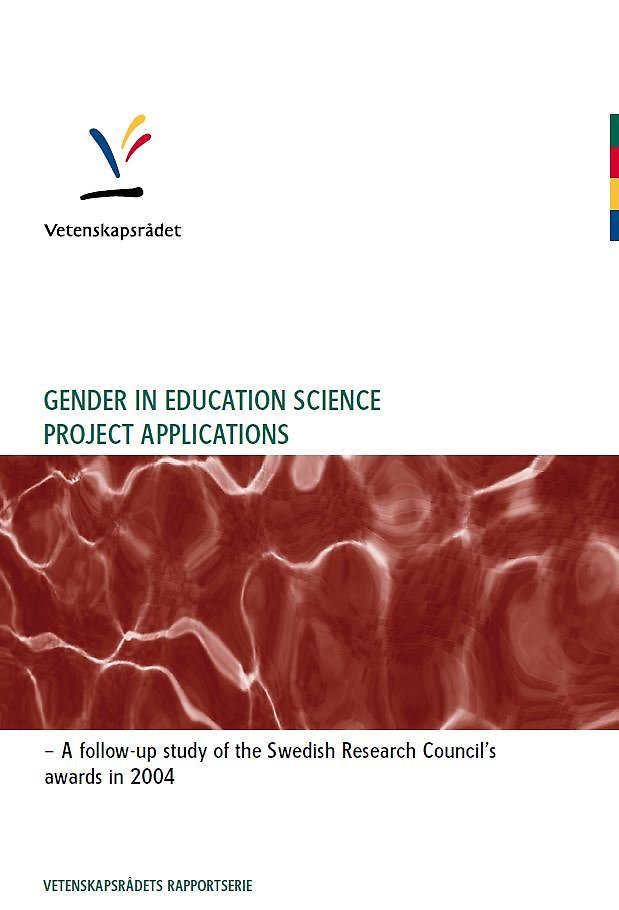Gender in education science – project applications
A follow-up study of the Swedish Research Council´s awards in 2004
The report presents the findings of a follow-up study into how gender fared in funding applications received by the Swedish Research Council (VR)/The Committee for Educational Sciences (UVK) in 2004. The follow-up study took place during two months in the summer of 2006. Working under time constrictions meant that it was imperative to be in contact with the right people as early as possible and with their help get access to the necessary material. Vera Novakova, who is amongst other things a research secretary on the Research Council’s Committee for Gender Research, introduced us to much of the material and been of considerable help.
The UVK have been most genial in providing considerable support and knowledge. In particular, we would like to thank Barbro Hänström, the section head for the Swedish Research Council/UVK, who has been most accommodating. In addition we would like to thank VR/UVK research secretary Kerstin Nordstand, whose expertise and engagement helped us in our evaluation of the material. This follow-up study has been the subject of many constructive discussions within the Research Council’s Committee for Gender Research.
MORE WITHIN THE SAME SUBJECT AREA
-
News |
Published 15 April 2024
The Swedish Research Council and Vinnova have signed a five year declaration of intent with the US National Science Foundation (NSF), which will facilitate research and innovation collaborations between Sweden and USA.
-
News |
Published 20 March 2024
Last autumn, the Swedish Research Council, Formas, Forte, and Vinnova made a focus decision to fund publishing using publishers that only produce journals with full open access. Agreements have now been entered into with four publishers.
Keywords:
-
News |
Published 5 March 2024
We have now published overall statistics for applications and grant decisions for 2023. To make the statistics more useful, we have divided up the subjects differently compared to previous years.




